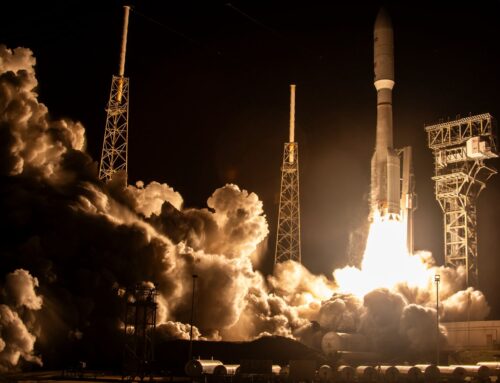5 Ways Jeff Bezos Could Put His Billions Toward Fighting Climate Change
April 6, 2025
There are worse things to be than one of the richest people in the world, but considering the flack that Jeff Bezos gets for his estimated net worth of $189.4 billion (which changes day to day), his therapist (or team of therapists?) might disagree. When you’re the current second-wealthiest human ever — behind first-place Elon Musk — people tend to ask you, “Hey, why not share the love and you know, save the world?”
Saving the world is too tall an order for even the richest person. However, around $200 billion from the Amazon founder could afford to solve — or at least make a serious dent in adjusting — a number of global crises.
See Next: Jeff Bezos’ Billion-Dollar Life: A Look at His Mansion Collection
Read More: 4 Affordable Car Brands You Won’t Regret Buying in 2025
Back in 2020, Bezos put forth the $10 billion Bezos Earth Fund which is still active and aims to disburse the funds by 2030 to address climate change and nature-related issues. To date, $2.3 billion has been funded so far, which may indicate it is behind schedule in 2025, the technical halfway point.
This fund serves as a commitment to fund scientists, activists, NGOs and other actors working to address climate change and protect nature. Here are a few ways Bezos is potentially putting billions to fight climate change.
There are 733 million people in the world suffering from chronic hunger — with roughly just under 50 million of those folks being in the U.S. How much money would it take to solve this global problem?
According to Global Giving, estimates range from $7 billion to $265 billion per year. Why such a wide range? Because every year brings its own diverse challenges from natural disasters to disease outbreaks and any one of them plays a chief role in the hunger crisis.
For the sake of argument, let’s just say it’s a “good” year for hunger and the cost to solve it is on the lower end, let’s say $10 billion. Bezos could pay and still have well over $150 billion to his name, despite his fluctuating net worth.
Find Out: Here’s the Minimum Salary Required To Be Considered Upper Class in California
Hand-in-hand with hunger is extreme poverty, and it’s on the rise. According to the World Bank, approximately 700 million people, or roughly 8.5% of the global population, live in extreme poverty, defined as surviving on less than $2.15 per day.
The math depends on location but to get out of being in what is considered extreme poverty, if 700 million people need a bump from $2.15 to $4, then $1.3 billion would be needed to close that gap. Bezos could front the cash and it would hardly affect his net worth at all.
Across the globe, over 4 billion people do not have access to safely managed drinking water services. WRI research estimates that resolving the clean water crisis by 2030 would cost just more than 1% of the global GDP, or roughly 29 cents per person daily, from 2015 to 2030. That number would surely exceed Bezos’ worth.
However, for example, Bezos could manage the clean water crisis in the U.S. In Michigan, 140,000 Flint residents have been exposed to lead in their water supply. Replacing all lead pipes in municipal water systems across the country could cost somewhere between a few billion to $50 billion. Even if it cost him a full $50 billion to replace lead pipes and open up access to clean water in U.S. households, Bezos would still be one of the richest men in the world.
Assuming that the pattern for plastic pollution in the ocean holds, the world could see 600 million metric tons clogging seas by 2040. Research from Pew Charitable Trusts and SYSTEMIQ found that if we overhauled the global plastic industry — the best way to stem the flow of plastic waste into the oceans — plastic pollution could be reduced by 80% over the next 15 years.
The price tag on such an ambitious overhaul is an estimated $600 billion, which is actually $70 billion cheaper than not overhauling it, because of reduced use of virgin plastic according to some experts. It’s too big a bill for even Bezos, but he could front a hefty deposit of say, $50 billion — or better yet, he could force Amazon to address its own plastics problem.
Many climate scientists estimate that global warming could be halted for a cool sum of over $275 trillion. Or more accurately, the cost of addressing climate change and transitioning to a net-zero economy would range widely anywhere from $275 trillion in total to $38 trillion annually. These scientists in particular were looking at tackling the agricultural aspect of climate change, chiefly desertification.
Not even Jeff Bezos can make much of a dent in that figure, so what could he do with his riches? Donating $10 billion toward climate action (as Bezos pledged via his Bezos Earth Fund initiative) is a good start, but how he spends the money is imperative. If he and some other uber-rich individuals like Mark Zuckerberg, Elon Musk and Larry Ellison teamed up on some of these issues, it could go a long way toward saving the planet.
Caitlyn Moorhead contributed to the reporting for this article.
More From GOBankingRates
-
Trump Tells Sean Hannity Why He Took Away One of America’s Favorite Tax Cuts
-
7 Tax Loopholes the Rich Use To Pay Less and Build More Wealth
-
Salary Needed To Achieve the American Dream in the 50 Largest Cities
-
How Much Money Is Needed To Be Considered Middle Class in Every State?
This article originally appeared on GOBankingRates.com: 5 Ways Jeff Bezos Could Put His Billions Toward Fighting Climate Change
Terms and Privacy Policy
Search
RECENT PRESS RELEASES
Related Post



